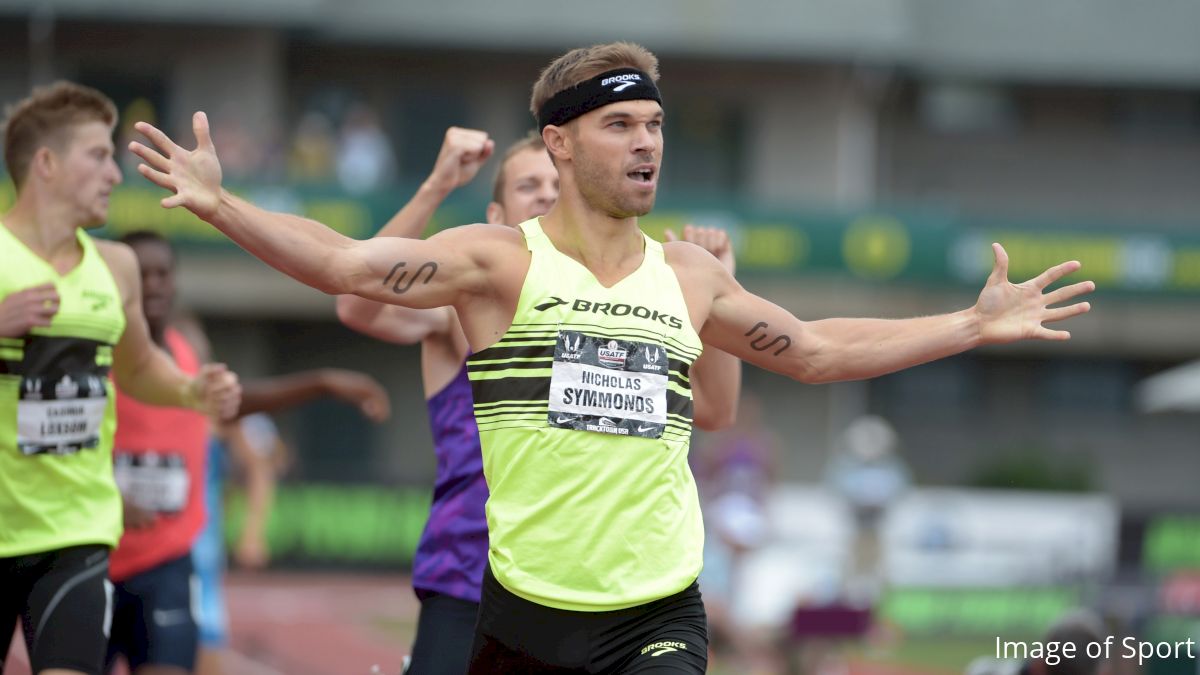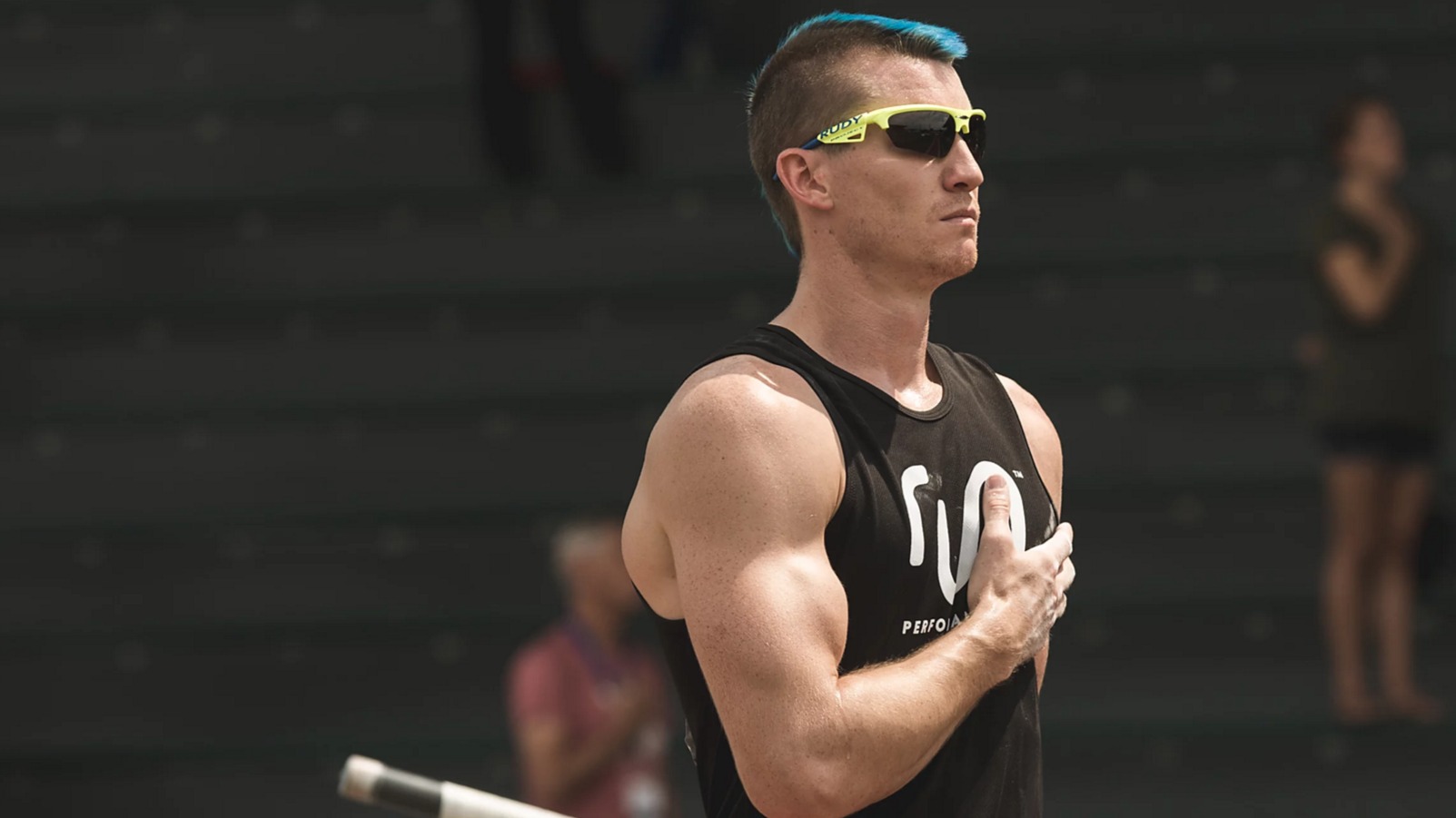Federal Judge Dismisses Run Gum Lawsuit
Federal Judge Dismisses Run Gum Lawsuit
The Run Gum antitrust lawsuit came to an end Thursday, May 12, when U.S. District Court Judge Michael J. McShane ruled to dismiss the case. McShane ruled th

The Run Gum antitrust lawsuit came to an end Thursday, May 12, when U.S. District Court Judge Michael J. McShane ruled to dismiss the case. McShane ruled that the organizations have “an implied grant of immunity” due to the Ted Stevens Olympic and Amateur Sports Act of 1978.
Nick Symmonds’ and Coach Sam Lapray’s chewing gum company originally filed an antitrust lawsuit in U.S. District Court in January which alleged that USATF and the U.S. Olympic Committee's (USOC) sponsorship regulations prevent free competition in the marketplace.
“These provisions enable the USOC and USATF to issue regulations that restrict apparel advertising in order to protect the value of the Olympic brand,” McShane wrote, according to a report from USA Today.
“Despite Run Gum’s contentions to the contrary, immunizing the regulations from antitrust liability does not unmoor the USOC from all responsibility under the Sherman Act,” McShane wrote. “Rather, it allows the USOC and USATF to preclude athletes from becoming human billboards at the Trials — a ban which is necessary to finance Team USA.”
Run Gum has sought an injunction to prevent USATF from enforcing the rules at the U.S. Olympic Trials.
The Run Gum lawsuit alleged that the rules created by USATF and USOC, which forbid athletes to showcase their sponsors during the 2016 U.S. Olympic Trials, exhibit “anticompetitive and unlawful conduct.” Run Gum is unable to advertise on athletes’ apparel at the Trials due to these regulations.
“Run Gum is filing an antitrust lawsuit against both USATF and USOC, specifically for not allowing us to advertise on athletes’ attire during the 2016 Olympic Trials,” Symmonds told FloTrack the day the lawsuit was filed on January 20. “All Run Gum is asking is to be allowed to compete with the Nike and the Brooks and the Reebok and all the other shoe companies and allow us to bid on that advertising space.”
The only logos that are allowed on athletes’ clothing during the U.S. Olympic Trials are those from apparel and equipment companies that have been approved by the USOC committee.
Run Gum wanted to provide short-term sponsorships of athletes during the Trials, much like the sponsorship package at last year’s USATF Outdoor Championships, but is unable to do so.

Run Gum and any other approved sponsor is allowed to exercise short-term sponsorship contracts for championships that include branded uniforms and travel funds to compete on a national stage. Symmonds himself wore Run Gum branded tattoos while winning his sixth 800m national title.
But the Olympic Trials are unlike the USATF Outdoor Championships in that the International Olympic Committee and USOC enforce more strict regulations. Unlike the USATF Outdoor Championships, a non-apparel company is not allowed to advertise on an athlete’s clothing at the Trials.
Symmonds recently sold nine inches of ad space on his shoulder to T-Mobile for $21,800. He put his skin up for auction on eBay and T-Mobile CEO John Legere designed a tattoo for the World silver medalist to wear in the Olympic year.
Nick Symmonds’ and Coach Sam Lapray’s chewing gum company originally filed an antitrust lawsuit in U.S. District Court in January which alleged that USATF and the U.S. Olympic Committee's (USOC) sponsorship regulations prevent free competition in the marketplace.
“These provisions enable the USOC and USATF to issue regulations that restrict apparel advertising in order to protect the value of the Olympic brand,” McShane wrote, according to a report from USA Today.
“Despite Run Gum’s contentions to the contrary, immunizing the regulations from antitrust liability does not unmoor the USOC from all responsibility under the Sherman Act,” McShane wrote. “Rather, it allows the USOC and USATF to preclude athletes from becoming human billboards at the Trials — a ban which is necessary to finance Team USA.”
Run Gum has sought an injunction to prevent USATF from enforcing the rules at the U.S. Olympic Trials.
The Run Gum lawsuit alleged that the rules created by USATF and USOC, which forbid athletes to showcase their sponsors during the 2016 U.S. Olympic Trials, exhibit “anticompetitive and unlawful conduct.” Run Gum is unable to advertise on athletes’ apparel at the Trials due to these regulations.
“Run Gum is filing an antitrust lawsuit against both USATF and USOC, specifically for not allowing us to advertise on athletes’ attire during the 2016 Olympic Trials,” Symmonds told FloTrack the day the lawsuit was filed on January 20. “All Run Gum is asking is to be allowed to compete with the Nike and the Brooks and the Reebok and all the other shoe companies and allow us to bid on that advertising space.”
The only logos that are allowed on athletes’ clothing during the U.S. Olympic Trials are those from apparel and equipment companies that have been approved by the USOC committee.
Run Gum wanted to provide short-term sponsorships of athletes during the Trials, much like the sponsorship package at last year’s USATF Outdoor Championships, but is unable to do so.

Run Gum and any other approved sponsor is allowed to exercise short-term sponsorship contracts for championships that include branded uniforms and travel funds to compete on a national stage. Symmonds himself wore Run Gum branded tattoos while winning his sixth 800m national title.
But the Olympic Trials are unlike the USATF Outdoor Championships in that the International Olympic Committee and USOC enforce more strict regulations. Unlike the USATF Outdoor Championships, a non-apparel company is not allowed to advertise on an athlete’s clothing at the Trials.
Symmonds recently sold nine inches of ad space on his shoulder to T-Mobile for $21,800. He put his skin up for auction on eBay and T-Mobile CEO John Legere designed a tattoo for the World silver medalist to wear in the Olympic year.